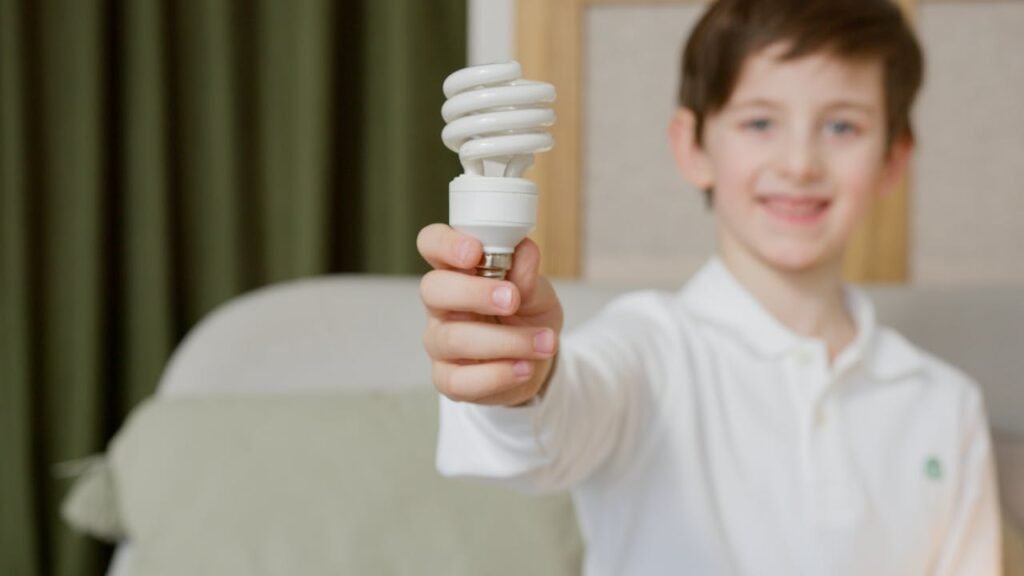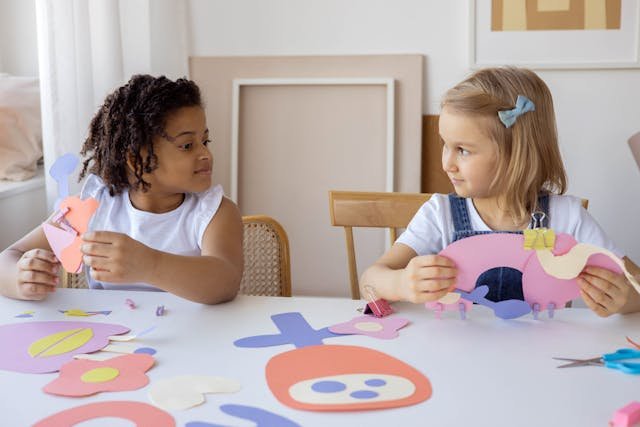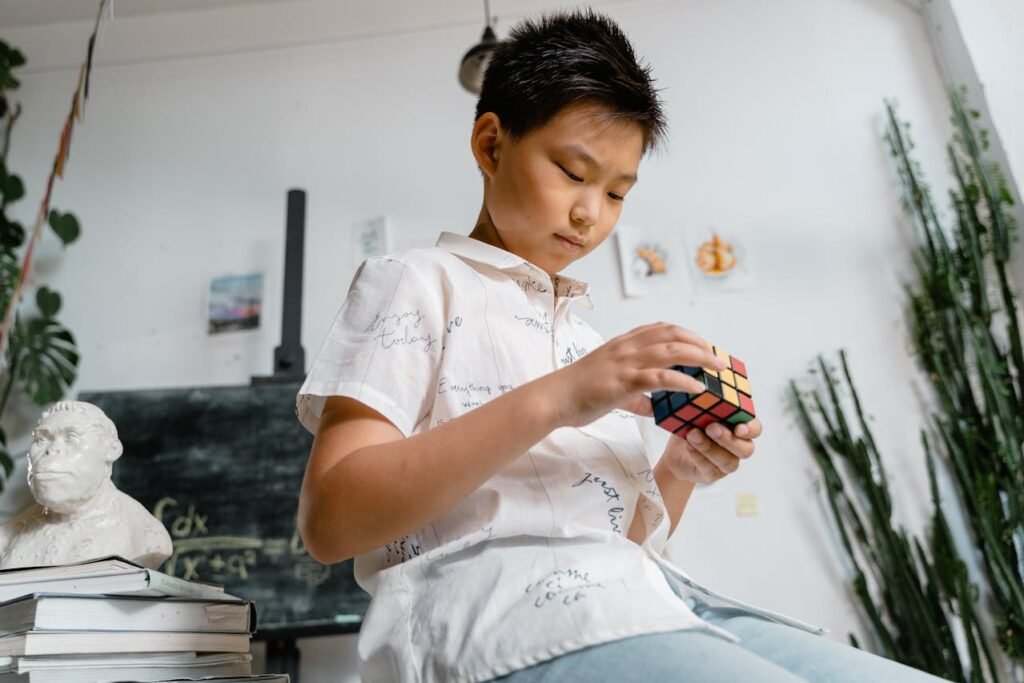Have you ever seen a child who just “gets it” right away? They hear something once, and boom — they remember it. They can solve problems quickly. They ask smart questions. It’s like their brain is moving faster than others.
But why does this happen? Why do some kids learn faster than others?
It’s not magic. It’s not just “being smart.” It has to do with something called cognitive speed. That’s just a fancy way of saying how fast the brain can take in information, understand it, and use it.
In this article, we’ll talk about how the brain learns, why some kids seem to learn faster, and — most importantly — how all kids can train their brain to learn better. Because the good news is this: fast learning isn’t something you’re just born with. It’s something you can grow, with the right tools and habits.
What Is Cognitive Speed, Really?
Cognitive speed is how fast the brain works. It’s how quickly a person can think, understand new things, make choices, and solve problems. Think of it like this: if your brain was a car, cognitive speed is how fast it can go from one idea to the next.
Some kids can take in a new idea and make sense of it very quickly. Others need more time — and that’s completely okay. Every brain is different. Just like some people run fast and some swim fast, some kids learn fast. But it doesn’t mean others can’t get there. Everyone can improve their thinking speed with practice.
Cognitive speed is not just about being quick. It’s also about accuracy. A child who learns fast isn’t just guessing. They are really understanding what they’re learning and remembering it.
What Makes Some Kids Learn Faster?
You may notice that some children pick things up really quickly. They remember what they read. They ask smart questions. They solve puzzles fast. And they seem to move through lessons with ease. But what’s really going on inside their brains?
Let’s break it down.
It’s Not Just “Smarts”
First, let’s be clear — learning fast doesn’t always mean a child is smarter than others. It just means their brain is doing a few key things really well. Some of those things are natural, and others come from daily habits and life experiences.
Every child can improve their learning speed by building these habits and getting the right kind of support.
Focus: The Superpower of Fast Learners
Children who learn quickly usually have strong focus. That means they can pay attention, block out distractions, and stay with a task until it’s done.
When the brain isn’t jumping from one thing to another, it uses more energy on thinking, solving, and remembering. So if a child can sit and really listen, even just for a short while, their brain can process information more clearly and quickly.
Memory That Works Like a Net
Fast learners often have good memory — not just for facts, but for how things work. They don’t just remember the answer; they remember the process. So next time a similar problem comes up, they know what to do.
They might not even realize they’re doing it — their brain is simply holding onto useful tools and ideas, and pulling them out at the right moment. That’s why reviewing and repetition helps so much — it strengthens these mental connections.
They’re Not Afraid to Try
Quick learners often have something very simple, but very powerful: confidence. They believe they can figure it out, so they do. Even if they’re wrong, they try again.
This “can-do” attitude helps their brain stay open. It tells the brain, “Keep going — this is worth it.” That’s a huge part of what makes learning faster.
A Brain That’s Used to Thinking
Here’s another big secret: fast learners use their brain a lot. They might ask a lot of questions. They might talk through their ideas. They might play thinking games, build things, or get curious about how things work.
The more they use their brain, the better their brain gets at working quickly and clearly. Just like muscles, thinking skills grow stronger the more we use them.
A Supportive Environment
Lastly, fast learners usually have one thing in common: they’ve been supported. Maybe someone reads with them at home. Maybe they have a teacher who gives them time to think. Maybe someone listens when they ask questions.
These small moments of support build trust, confidence, and love for learning — all of which help kids learn faster and more deeply.
Fast Learning Is Not Just for “Gifted” Kids
Sometimes people think only “gifted” kids can learn fast. But the truth is, learning speed is not a fixed gift. It’s a skill. It can grow, just like reading or riding a bike.
At Debsie, we help every child — no matter their starting point — build the tools they need to think faster, learn smarter, and feel more confident.
What Happens in the Brain When Kids Learn
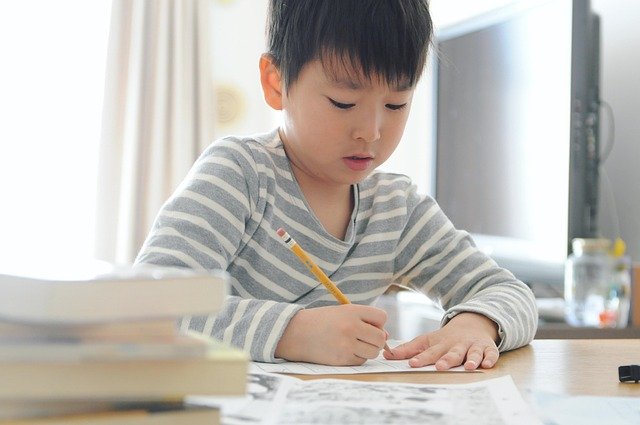
To understand why some kids learn faster, let’s look inside the brain. When a child learns something new, their brain sends tiny signals between brain cells. These cells, called neurons, are like messengers. They talk to each other and pass along information.
The faster and smoother these signals move, the faster a child learns.
Brain Pathways Get Stronger With Use
Every time a child learns something — like a new word, a math trick, or a science fact — their brain builds a new path. The more they practice that skill, the stronger the path becomes. It’s like a trail in the woods: walk it once, and it’s hard to see. Walk it every day, and it becomes clear and easy to follow.
That’s why practice is so important. When children go over things again and again, they’re not just remembering — they’re making their brains faster and more efficient.
Mistakes Help the Brain Grow
It might sound strange, but mistakes are good for the brain. When a child gets something wrong, and then figures out the right answer, their brain works hard to fix the mistake. This fixing process actually makes learning stronger and faster next time.
So when we say, “It’s okay to make mistakes,” we really mean it. Mistakes are part of fast learning.
Emotions Affect Learning Speed Too
If a child feels happy, safe, and calm, their brain is open and ready to learn. But if they feel scared, stressed, or embarrassed, it’s harder for their brain to work well.
This is why kind teachers, patient parents, and a fun learning environment can make such a big difference. When kids feel supported, their learning speed increases naturally.
Confidence Makes the Brain Try More
When kids believe they can learn, they do better. Confidence helps them take chances, ask questions, and try again after a mistake. And every time they try, they build more brain power.
That’s why at Debsie, we focus not just on teaching — but on helping kids feel good about learning. Because a confident brain is a faster brain.
How to Help Your Child Learn Faster at Home
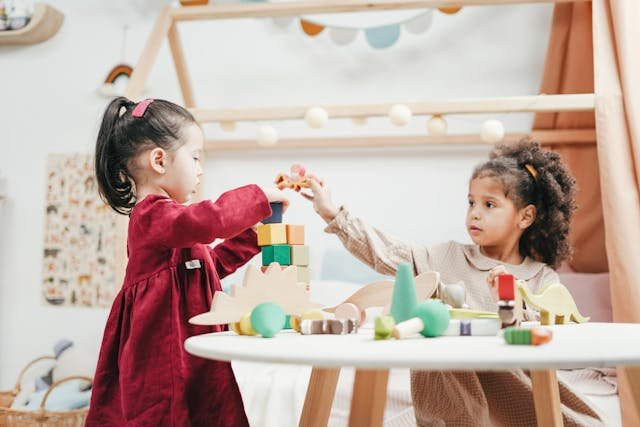
The great thing about cognitive speed is that it can grow. You don’t need special tools or fancy lessons. Many simple, everyday things can help your child learn faster and think better — and you can start right at home.
Talk Often and With Meaning
One of the best ways to grow the brain is through conversation. When you talk with your child — really talk, not just give instructions — you help them build language, memory, focus, and thinking skills all at once.
Ask them how their day was. Talk about something you see on a walk. Let them ask questions, even the silly ones. Every back-and-forth talk is building their thinking speed.
Ask “Why” and “What If”
When you ask questions like “Why do you think that happened?” or “What would you do if…?” you’re helping your child practice deeper thinking. These types of questions don’t have one right answer. They make the brain explore and connect ideas.
This helps your child become not just faster, but smarter — because they learn to think clearly and creatively.
Give Time to Think
Some children need more time to think before they speak or act. Don’t rush them. When you give your child time to find their words or solve a problem, their brain gets to do the real work.
Over time, this practice helps them answer more quickly and clearly. So even silence can be a good tool for learning speed.
Make Learning Fun
Children learn faster when they’re having fun. Games, puzzles, stories, songs, and even silly wordplay all help the brain grow. Laughter and joy make the brain more open to learning.
If your child is enjoying what they’re doing, chances are their brain is learning at full speed.
Don’t Just Praise the Result — Praise the Effort
When your child solves a problem or learns something new, it’s easy to say, “Good job!” But what really helps is saying things like:
- “You worked so hard on that!”
- “I love how you figured it out step by step.”
- “That was a smart way to try it.”
This kind of praise tells your child that learning is about the process, not just the answer. And that makes them more willing to keep learning, even when it’s hard.
Keep a Healthy Routine
Brains need sleep, healthy food, water, and breaks. A tired or hungry brain doesn’t learn well. Make sure your child gets enough rest, eats brain-friendly foods, and has time to play, relax, and recharge.
A balanced brain is a fast brain.
What Slows Learning Down — And How to Help

Just like some things make the brain work faster, other things can slow it down. The good news is, most of these can be fixed with the right support and habits.
Too Much Screen Time
Screens can be fun and helpful — especially when used for learning — but too much can tire the brain. Fast-moving games or videos make it harder for kids to focus, especially on quiet tasks like reading or problem-solving.
If your child is spending many hours a day on screens, their brain may start expecting everything to move fast and feel fun. Then, when real learning takes time or feels slow, they lose interest quickly.
To help, try to balance screen time with screen-free activities like drawing, outdoor play, reading, or talking with you. A good balance helps the brain stay flexible and focused.
Fear of Making Mistakes
Some kids are so afraid of getting something wrong, they stop trying. This fear blocks learning. The brain becomes tense and shuts down instead of exploring.
The best way to help is by making your home a safe place to be wrong. Praise effort. Celebrate mistakes as learning steps. Say things like:
- “Wow, that was a great try.”
- “Let’s figure it out together.”
- “It’s okay to not get it right the first time.”
When your child feels safe to try, their brain starts learning faster again.
Comparing With Others
Every child is unique. When kids start comparing themselves with classmates, siblings, or friends, they may feel less confident. And when confidence goes down, learning speed often goes down too.
Instead of comparing, help your child notice their own growth. Say things like:
- “Look how much faster you solved that today!”
- “Remember when this used to be hard for you?”
Focusing on progress, not perfection, helps children feel proud and motivated to keep going.
Lack of Sleep or Poor Nutrition
A tired brain is a slow brain. A hungry brain can’t focus well. Kids need good sleep and healthy food — especially when their brains are working hard.
Even small changes can help:
- A calm bedtime routine
- Less sugar and more fruits or veggies
- Drinking plenty of water
These small habits make a big difference in brain power.
Helping Without Pushing: The Parent’s Role in Fast Learning

As a parent, you want your child to do well — to feel confident, capable, and proud. But when we hear words like “faster learning” or “smart thinking,” it’s easy to feel pressure. The truth is, helping your child learn faster doesn’t mean rushing them or filling every minute with lessons.
It means creating the right space for their brain to grow — with love, trust, and daily support.
Slow and Steady Wins Too
Not every child needs to learn fast to do well. Some children are deep thinkers. They move slowly, but they see things others miss. That kind of learning is powerful too. So don’t worry if your child isn’t the fastest in the class. What matters most is that they keep growing.
Celebrate progress, not just speed.
Be Curious Together
Children learn faster when they see learning as something fun — not just something to “get right.” Ask questions together. Look things up together. Share your own wonder: “I wonder how birds know where to fly…” or “Let’s find out why the moon changes shape.”
When you learn with your child, you show them that learning isn’t just for school — it’s for life.
Praise the Process, Not Just the Score
When your child brings home a good grade, that’s great. But what really builds a strong brain is praising how they got there.
Say things like:
- “I saw how hard you worked.”
- “You didn’t give up even when it got tricky.”
- “I love how you explained that in your own words.”
These words stick. They help your child keep trying — and that’s what grows fast, deep, lasting learning.
The Role of Mindset in Learning Speed
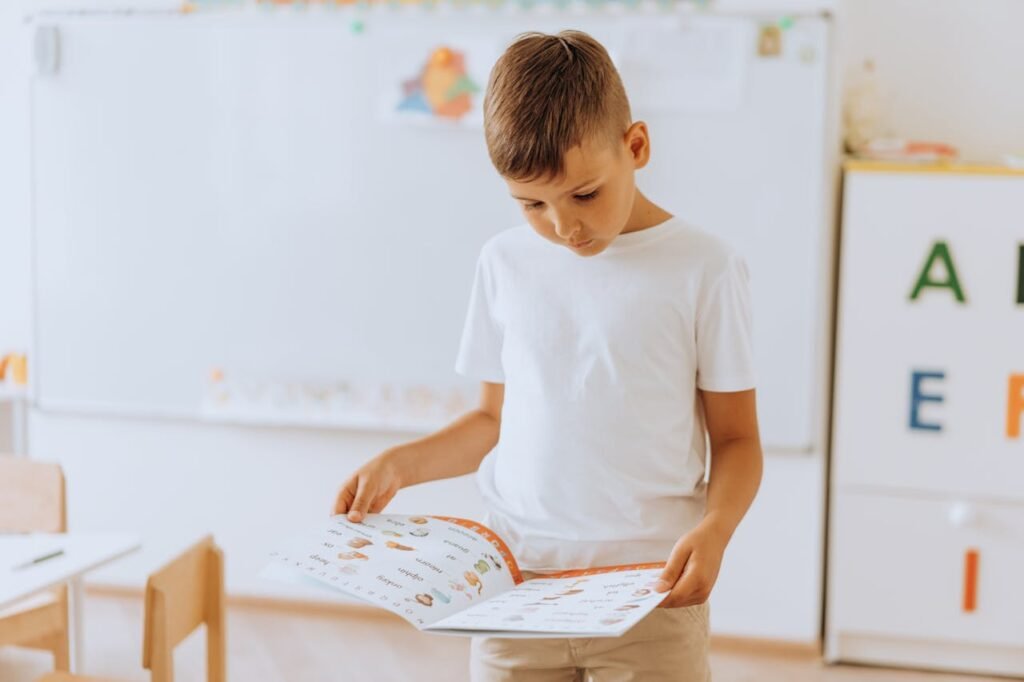
Sometimes, the biggest difference between kids who learn fast and kids who struggle isn’t how smart they are — it’s how they see learning. This is called their mindset. It’s the way they think about their own abilities.
And guess what? A strong, healthy mindset can speed up learning in amazing ways.
Fixed vs. Growth Mindset
Some kids believe they’re either “good at something” or “not good at it.” If they think they’re not good at math, for example, they might give up quickly or stop trying. This is called a fixed mindset — the belief that ability is something you’re born with and can’t change.
But other kids believe they can get better with practice. They know they might not understand something yet, but they believe they will if they keep working at it. This is a growth mindset — the belief that learning is something you can grow, like a muscle.
Guess which one helps the brain learn faster?
The growth mindset.
How Mindset Affects the Brain
When a child has a growth mindset, their brain stays open and ready to learn. It doesn’t freeze when something is hard. It says, “Okay, let’s try again.” That simple switch — from fear to curiosity in kids, changes everything.
The brain of a child with a growth mindset:
- Tries longer before giving up
- Learns more from mistakes
- Recovers faster from failure
- Enjoys challenges more
These habits don’t just help them learn faster — they help them become stronger learners for life.
How to Build a Growth Mindset at Home
You can help your child build this mindset by changing the words you use. Instead of saying, “You’re so smart,” try saying:
- “You worked hard on that!”
- “Look how much you’ve improved.”
- “You didn’t give up — that’s what matters.”
Also, talk openly about your own learning. Let them hear you say, “Hmm, I don’t know — but I’m going to find out.” Show them that learning is not about being perfect. It’s about being curious and willing to grow.
When a child believes they can learn anything, they usually do — and they do it faster than ever.
How Debsie Helps Kids Learn Faster and Smarter

At Debsie, we understand that every child learns in their own way and at their own pace. That’s why we don’t just teach facts — we build brain power. Everything we do is designed to help kids think faster, focus better, and understand more deeply.
Learning That Matches the Brain’s Speed
Some kids race ahead. Others take more time to think. At Debsie, both are welcome.
Our teachers are trained to notice how each child learns. We adjust the pace to fit the student, not the other way around. When a child feels comfortable and supported, their brain is free to do its best work.
Real Teachers Who Listen and Guide
Debsie classes are taught by caring, experienced teachers — not recordings. That means your child can ask questions, share thoughts, and get real answers. These conversations are not just good for learning — they boost learning speed. Talking things through helps ideas click into place faster.
We give children the space to speak, to listen, and to think out loud. These are small things, but they build big brain power.
Across All Subjects — One Core Skill: Thinking
Whether your child is learning science, math, English, coding, or geography — all our lessons are built to grow thinking skills.
We don’t just want your child to know the answer. We want them to know how to get there. That means understanding the process, seeing the connections, and learning how to solve problems on their own.
This is the secret to fast learning: not just remembering — but truly understanding.
Learning That Feels Like Play
When learning is fun, the brain stays open and alert. That’s why we build games, stories, puzzles, challenges, and creativity into our lessons. A child might be solving a math puzzle, explaining a science fact in a story, or building something cool in coding class — all while learning at full speed.
They don’t even notice how much their brain is growing. That’s how learning should feel.
A Path That Grows With Your Child
Whether your child is 5 or 15, Debsie has a place for them. We grow with your child — from simple sentence-building to full essays, from basic math to advanced problem-solving.
Each class builds on what came before, helping children move forward with confidence. And because everything connects, your child learns faster in every subject — not just one.
Conclusion: Every Child Can Learn Faster — With the Right Support
Some kids seem to learn fast. Others take more time. But the truth is, every child’s brain is full of amazing potential — and with the right support, habits, and mindset, any child can learn faster, think better, and feel more confident.
It’s not about pressure. It’s not about being the smartest. It’s about building the right tools: focus, memory, curiosity, and belief in themselves. And the best part? These tools don’t come from long tests or tough lessons. They come from small, everyday things — like talking, asking questions, playing, reading, and being supported.
At Debsie, we understand that learning speed isn’t just about what’s taught — it’s about how it’s taught, who is teaching, and how a child feels while learning. That’s why we focus on growing smart minds and strong hearts — together.
✨ Whether your child is curious, shy, super active, or still finding their way — there’s a place for them here.
👩🏫 Want your child to think faster, learn smarter, and fall in love with learning?
📚 Book a free trial class with Debsie today and watch your child’s brain (and confidence) bloom.
Because every child deserves to feel smart — and become unstoppable.
Read Next:
